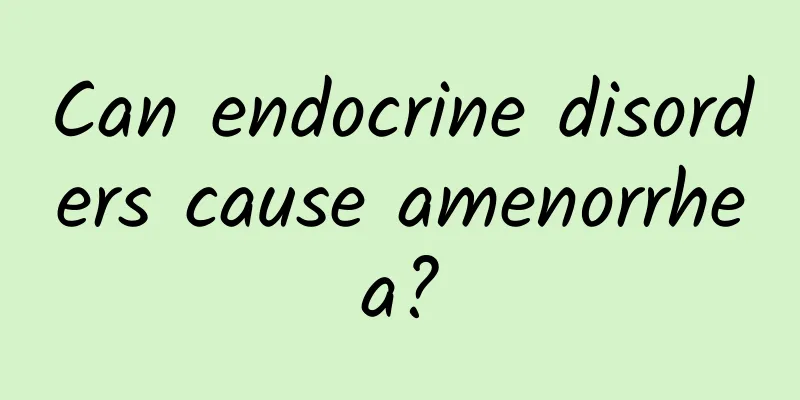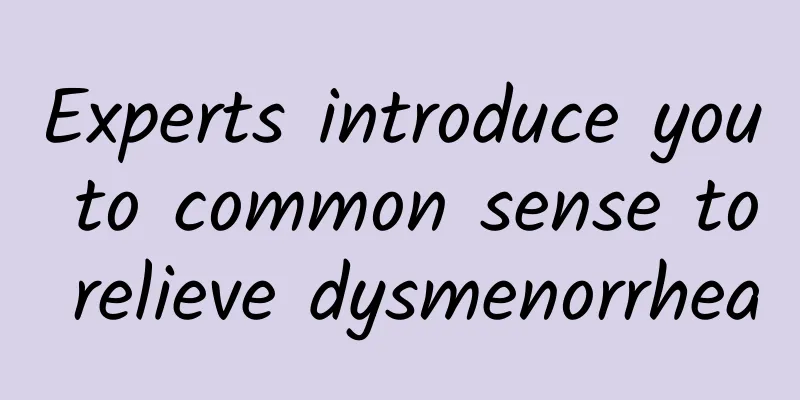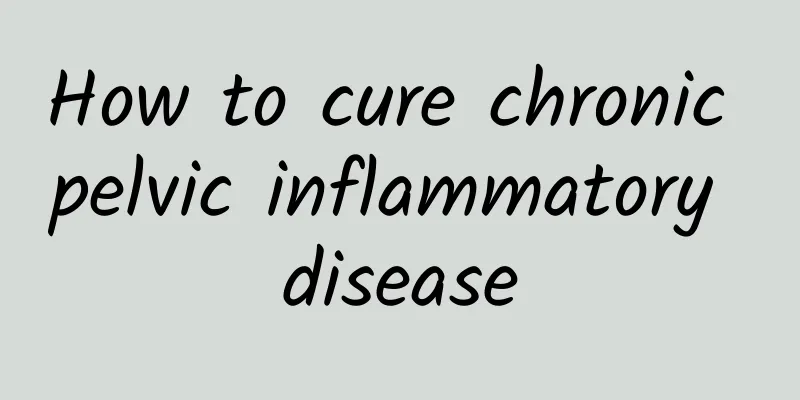Can endocrine disorders cause amenorrhea?

|
Endocrine disorders induce amenorrhea, so it is important to find the cause first and then treat it symptomatically. If it is polycystic ovary syndrome, then it is necessary to improve insulin and promote ovulation; if it is hyperthyroidism, then some anti-hyperthyroidism drugs are needed; if it is Cushing's syndrome, then surgery is usually required for treatment. In real life, due to excessive stress in life or bad living habits, many women have some adverse symptoms, such as endocrine disorders, which are very harmful to women's health. So, will endocrine disorders induce amenorrhea? Let's find out below! In addition to endocrine disorders, for most women, abnormal secretion of sex hormones is also one of the important reasons for irregular menstrual cycles. At the same time, the decline in estrogen levels can also cause patients to experience adverse symptoms such as macular pigmentation, irritability, insomnia, anxiety, and reduced menstrual flow. In addition, endocrine disorders can even cause serious consequences such as sexual dysfunction in men. |
<<: Why does my period come back half a month after it ended? Endocrine disorder
>>: What are the reasons for girls not having menstruation? First of all, it may be pregnancy
Recommend
Will I not get vaginitis if I don't have sex? What are the ways to prevent vaginitis?
Vaginitis is the most common gynecological diseas...
What are the symptoms of cervical erosion surgery in women? 4 symptoms after cervical erosion surgery
It is not uncommon for women to have cervical ero...
Are there also levels of diet for running? Training Diet Revealed
When jogging became a national sport, various rel...
There are many dangers of menopause
Postmenopausal women sometimes experience private...
How to identify bacterial vaginosis early
Bacterial vaginitis is a common type of vaginitis...
How to prevent vulvar itching most effectively
Vulvar pruritus can be prevented by some precauti...
People who eat out increase the risk of obesity, high blood pressure, and high blood sugar! How should people who eat out eat to lose weight and slim down their waist?
Busy office workers often eat out, either buying ...
What are the most common causes of pelvic inflammatory disease?
What are the most common causes of pelvic inflamm...
Nonspecific vaginitis will continue to spread if it is not treated for a long time
Since the occurrence of nonspecific vaginitis is ...
What are the precautions after painless abortion? Let's take a look
If you have a painless abortion, you need to pay ...
Clinical manifestations of chronic cervicitis
Cervicitis is a common gynecological inflammation...
What are the dangers of menopause?
Menstruation will accompany women for most of the...
Specific identification of early symptoms of vaginitis
Now many patients have missed the best time to tr...
What should pregnant women do if they have uterine fibroids? How should pregnant women treat uterine fibroids?
Uterine fibroids are not a serious disease, but s...
Why do red streaks appear after six days of menstruation and last for about three or four days?
Why does red thread appear six days after menstru...









